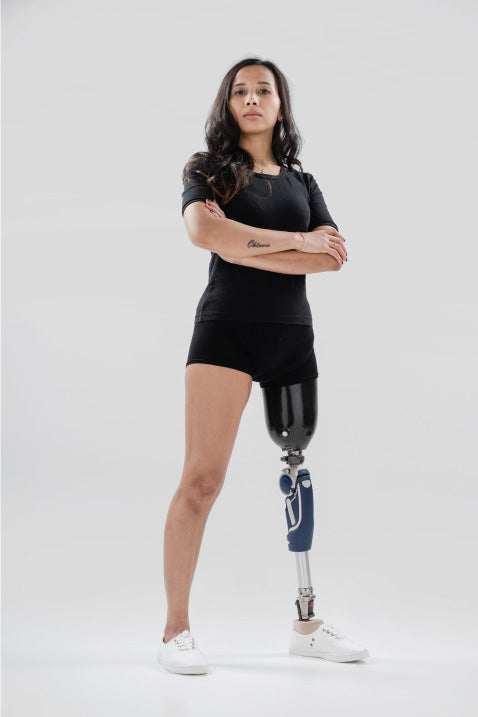How Mindfulness Can Improve Your Amputee Life
In a time of constant busyness, our society has sought for ways to relax and be more in-tune with the present. One of the buzziest words in self-care circles is mindfulness, which is based on ancient Buddhist teachings that were brought to Western culture in the 1990s. Many people have used the principles of mindfulness to improve their quality of life and health, boost happiness, and decrease stress.

Mindfulness is also helpful in times of internal conflict or struggle and life transitions, both of which are true for those who are new to amputee life. Coping with limb loss is a journey— one that can be difficult and overwhelming. Just as mindfulness has helped many cope with the stress of modern living, we found that the practice can also improve your journey.
How can mindfulness help me?
Mindfulness improves your mindset, which is helpful when you’re trying to find the silver lining in everything life gives you. It prevents you from being bogged down and overwhelmed by unnecessary and negative noises in your head.
Practicing mindfulness in your everyday life allows you to clear your thoughts and open yourself to what’s happening around you and making the most out of the situation or the opportunities available now. Most importantly, when you practice mindfulness, you free your mind from constantly fearing and worrying about what could or has happened.
Key tenets of mindfulness
To help us practice mindfulness the right way, we turned to Jon Kabat-Zinn’s book, Full Catastrophe Living. Kabat-Zinn is the founder of MBSR or mindfulness-based stress reduction. In the book, he included tenets to mindfulness, and below are those that we found relevant to the improvement of your amputee life.
1. Acceptance, letting go, and non-striving
These three attitudes help you live in the moment and let go of the desire to try and control everything. Most importantly, taking on these attitudes helps free up space in your mind for ways to move forward. Remember that the opposite—pushing, pulling, grasping, or emotionally clinging to something—does not help you attain peace of mind.
2. Adopt a beginner’s mindset
Starting your amputee life is, in many ways, a reset. In the first few months or even years, you will be doing a lot of unlearning as well as relearning. This life requires a beginner’s mindset. Applying the beginner’s mindset allows you to approach life with fresh eyes. And without clinging on to decades’ worth of baggage, you will be able to move forward with your rehabilitation and on to living life in a whole new way.
3. Trust
Trusting yourself is powerful. Living with the knowledge that your experience and perspective are right for you can help you meet whatever challenge comes your way. Most importantly, trusting yourself makes it easier for you to trust other people more, which is crucial because you need to trust your healthcare team and your prosthetist to know how to help you.
4. Patience
In a society where speed is overvalued, patience is extremely lacking. As an amputee, being patient with yourself and your progress is crucial for you to heal and move forward with your life. For example, when you start your amputee training sessions, try to be patient with yourself. Your body is trying to unlearn years of doing things a certain way; it needs time to rewire and relearn basic things like walking or stair climbing. Keep in mind that everyone’s progress looks different. You have time.
5. Gratitude and generosity
Both gratitude and generosity bring lightheartedness and even appreciation for every challenging situation you are bound to face in your new life. Both also foster a positive atmosphere, making it easier for your healthcare team to help you and for you to help yourself.
Practicing these five tenets in your life is good. However, try to remember that you cannot flawlessly incorporate these mindsets and attitudes overnight. You have to practice patience with yourself every single day and continue moving forward. Before you know it, these five tenets will become second nature to you.
What do you think of these five mindfulness practices? Which mindsets or attitudes do you want to work on first? Let us know in the comments section below.










































































